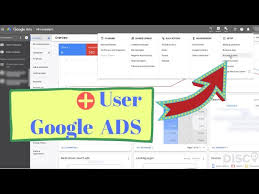Corruption within Child Protective Services (CPS) can have devastating consequences for vulnerable children and families. In West Virginia, ensuring the integrity of the CPS system is paramount to protect the rights and well-being of children. However, investigating corrupt practices within CPS can be a complex and challenging task. In this guide, we will explore the steps involved in effectively investigating cases of corrupt CPS practices in West Virginia.
Understanding the Scope of the Issue
Before delving into the investigation process, it’s essential to understand the scope of the issue. Corruption within CPS can manifest in various forms, including bribery, falsifying documents, nepotism, and abuse of power. These unethical practices not only jeopardize the safety of children but also erode public trust in the child welfare system.
Identifying Red Flags
Recognizing red flags indicative of corrupt CPS practices is the first step in launching an investigation. Some common red flags include:
- Inconsistent documentation or missing records
- Sudden changes in case decisions without justification
- Reports of coercion or intimidation tactics used by CPS workers
- Allegations of collusion between CPS employees and external parties
- Unexplained delays or lack of progress in child welfare cases
Gathering Evidence
Once red flags are identified, the next step is to gather evidence to substantiate allegations of corruption. This may involve:
- Document Review: Thoroughly review case files, correspondence, and communication records for inconsistencies or irregularities.
- Witness Interviews: Interview relevant parties, including current and former CPS employees, families involved in CPS cases, and other stakeholders who may have pertinent information.
- Data Analysis: Utilize data analytics tools to identify patterns or anomalies in CPS case data that may indicate systemic issues or misconduct.
- Surveillance: In cases where there is suspicion of criminal activity, consider employing surveillance techniques to gather evidence discreetly.
Legal Avenues
Navigating the legal landscape surrounding corrupt CPS investigations requires careful consideration and adherence to relevant laws and regulations. Some legal avenues to explore include:
- Reporting to Authorities: If you have evidence of criminal behavior, such as bribery or fraud, report it to the appropriate law enforcement agencies for investigation.
- Whistleblower Protections: If you are a CPS employee or whistleblower with inside knowledge of corruption, familiarize yourself with whistleblower protection laws that safeguard your rights.
- Civil Litigation: In cases where corruption has resulted in harm or injustice, explore options for pursuing civil litigation against responsible parties.
Ensuring Accountability
Transparency and accountability are essential for restoring trust in the CPS system. As such, it’s crucial to advocate for systemic reforms and oversight measures to prevent future instances of corruption. This may involve:
- Policy Advocacy: Work with legislators and policymakers to enact laws and policies that promote transparency, accountability, and ethical conduct within CPS.
- Public Awareness Campaigns: Raise awareness among the public about the prevalence and impact of corrupt CPS practices, fostering a demand for accountability and reform.
- Community Engagement: Engage with communities affected by CPS corruption to empower them to advocate for their rights and hold authorities accountable.
Conclusion
Investigating corrupt CPS practices in West Virginia requires diligence, perseverance, and a commitment to upholding the rights of children and families. By identifying red flags, gathering evidence, navigating legal avenues, and advocating for accountability, we can work towards a more just and transparent child welfare system. Together, we can ensure that every child receives the protection and support they deserve.
In conclusion, tackling corruption within CPS is a challenging but necessary endeavor to safeguard the well-being of children and uphold the principles of justice and accountability. By following the steps outlined in this guide, we can work towards rooting out corruption and building a more equitable child welfare system in West Virginia.


